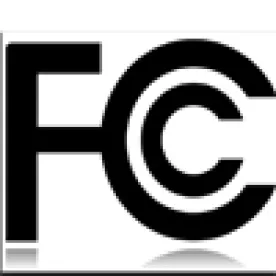Through its latest declaratory rulings on Friday, the FCC shunned an opportunity to rein in the damage that has been done to U.S. businesses over the past several years by the TCPA plaintiffs’ bar, choosing instead by a 3-2 vote to expand the scope of the TCPA beyond its statutory meaning. The FCC’s rulings create a dangerous landscape for not just telemarketers, but any companies that do business over the phone. TCPA litigation has dramatically spiked in recent years (at least 2,000 TCPA cases were filed in 2014 alone), and the FCC’s latest action will do nothing to stem the tide—as FCC Commissioner Ajit Pai wrote in a recent editorial for The Daily Caller, “Almost every call between a business and its customers will become a potential TCPA violation.” That sound you hear is the TCPA plaintiffs’ bar exchanging high fives.
The most troubling FCC rulings address the following areas:
Autodialer Definition. The FCC found that an autodialer is any technology with a capacity to dial random or sequential numbers. This ruling attempts to bring within the TCPA’s ambit various technologies that have been implemented to avoid falling under the TCPA. This has long been a contentious issue in court, as litigants dispute whether technology that is merely capable of random or sequential number generation (but did not use such generation to place the call at issue in the litigation) falls within the autodialer definition. If adopted by the courts, the FCC’s latest ruling would strip defendants of this argument, turning nearly any telephone system into an “autodialer.” For example, it is easy to imagine an iPhone app that gives the user the ability to dial random or sequential numbers. Does that mean that iPhones are “capable” of random or sequential dialing, and thus all iPhones are “autodialers” for the purposes of the TCPA? That surely cannot be what Congress intended when it wrote the legislation, but that is the practical effect of the FCC’s ruling.
Commissioner Michael O’Rielly was highly critical of the autodialer ruling in his statement during the FCC’s open meeting on June 18, 2015, noting the absurdity of the fact that
[e]quipment that could conceivably function as an autodialer in the future counts as an autodialer today. Indeed, the new definition is so expansive that the FCC has to use a rotary phone as an example of a technology that would not be covered because the modifications needed to make it an autodialer would be too extensive.
Opt-Out. Consumers must be able to revoke their consent to receive autodialed calls and texts at any time. This may seem like a good idea in practice—why can’t a call center remove the customer’s number or a text messaging system automatically blacklist a number that sends a “STOP” message?—but it fails to account for the nuance of customer interactions with a business. As Commissioner Pai noted in his statement during the FCC’s open meeting on June 18, 2015,
How could any retail business possibly comply with the requirement that consumers can revoke consent orally ‘at an in-store bill payment location?’ Would they have to record and review every single conversation between customers and employees? Would a harried cashier at McDonald’s have to be trained in the nuances of customer consent for TCPA purposes? The prospect makes one grimace.
Reassigned Numbers. Callers have one opportunity to call a number that has been reassigned to a different subscriber. The FCC declined to require a national database of reassigned numbers or a lag time before phone numbers are reassigned, though the FCC encouraged carriers to voluntarily implement these practices. This is troubling because it creates liability for companies that originally obtained the proper consent and have no reason to know that the number has been reassigned. Perhaps the company will get lucky and the new owner of the phone will respond to the first call by letting the company know that the number has been reassigned. But what if this is not the case? Commissioner Pai provided an example during the FCC’s open meeting:
[West coast restaurant] Rubio’s sends its quality-assurance team text messages about food safety issues, such as possible foodborne illnesses, to better ensure the health and safety of Rubio’s customers. When one of Rubio’s employee lost his phone, his wireless carrier reassigned his number to someone else. Unaware of the reassignment, Rubio’s kept sending texts to what it thought was an employee’s phone number. The new subscriber never asked Rubio’s to stop texting him—at least not until he sued Rubio’s in court for nearly half a million dollars.
All of these rulings are problematic because they fail to distinguish between unwanted telemarketers and legitimate businesses trying to reach their customers. As dissenting Commissioners Pai and O’Rielly noted, the regulations should provide some exception for “good faith efforts” to comply with the TCPA. But so far the FCC has shown little interest in protecting the interests of legitimate businesses that could be faced with millions of dollars in damages—and perhaps even insolvency—as a result of highly technical TCPA claims brought by plaintiffs’ lawyers on behalf of plaintiffs who suffered little or no actual damage. As Commissioner Pai noted, “the primary beneficiaries will be trial lawyers, not the American public.” Hopefully, the courts will realize these fundamental flaws and decline to follow these rulings, holding that the FCC has exceeded its authority. But for now, TCPA plaintiffs’ lawyers rejoice—and companies that market by phone should take cover.




 />i
/>i

